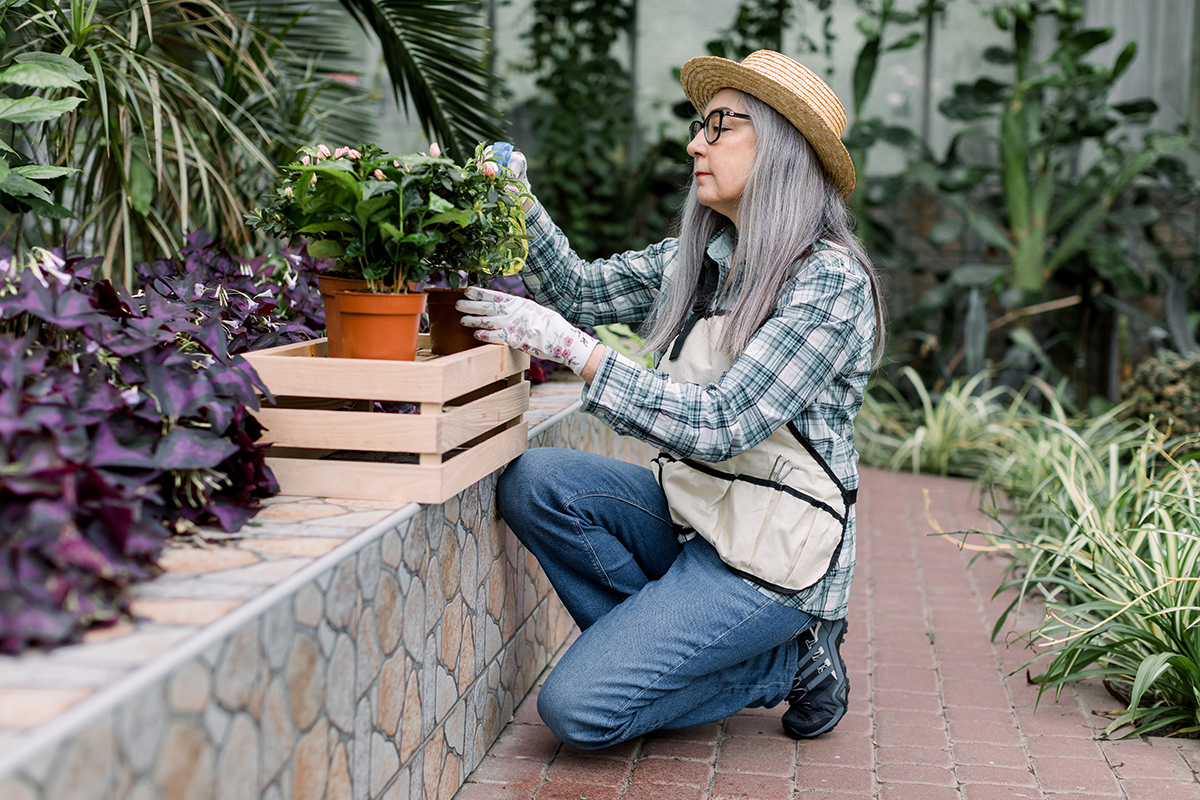Several therapeutic processes help people deal with addiction and mental and physical issues. Horticultural therapy is one of the techniques used to assist individuals in their addiction recovery journey. This therapeutic approach has been widely used and has remained effective for a long time. Please continue reading to learn more about it.
What is Horticultural Therapy?
Horticultural therapy is a type of therapy that uses garden environments for therapeutic interventions. This garden is referred to as a therapy garden. Participants spend time in this garden cultivating the plants and flower growth as part of their treatment. It’s also referred to as social and therapeutic horticulture.
This therapy can be used across many settings, from rehabilitation for physical and mental well-being to an environment that fosters a sense of community. It’s also suitable for addiction recovery. A horticultural therapist leads the interventions in this garden.
How Does Horticultural Therapy Work?
Horticultural therapy works depending on the specific issue it’s meant to treat. Here are different ways showing how it works:
Gardening and Mental Health
Horticultural therapy is a suitable therapy for people with mental illness. People dealing with mental health problems can use this approach to detach from their emotional pain and reconnect with the external world and present moment while engaging in different gardening activities.
Gardening is known to reduce stress by decreasing cortisol levels, although it’s not clear how it affects the brain. However, therapists combine traditional therapies like medication and cognitive behavioral therapy for this therapy to be effective. This makes it suitable for residential addiction treatment, cocaine rehabilitation, opioid rehabilitation, and alcohol rehabilitation.
Gardening and Physical Therapy
Horticultural therapy programs are also suitable for inpatient treatment for recovering from injury, stroke, and surgery. A horticultural therapist sets up different horticultural activities to strengthen the muscles, regain dexterity in the hands, build endurance, and balance with various physical problems. It also helps patients regain their ability to carry out their daily activities.
Gardening and Social Therapy
Horticultural therapy can also be a suitable form of social therapy. Social therapy is an intervention based on groups and the role of an individual in that group. This therapy helps individuals experiencing anxiety and psychological anxiety regulate their emotions and build a connection with others participating in the therapy.
Horticultural therapy provides a safe and secure place where people dealing with social issues can develop and improve their ability to mix with others in group therapies. A horticultural therapist guides participants into activities requiring interaction to achieve a common goal. Some of the social issues that this therapy can help deal with include the following:
- Low confidence
- Extreme shyness
- Social anxiety
- Depression
- Low self-consciousness
- Frustration
What Makes an Excellent Therapy Garden?
A therapeutic garden should meet certain aspects to achieve its purpose. These gardens are plant dominated, purposefully designed to facilitate passive and active interactions with nature’s healing element. Here is a breakdown of the characteristics of an ideal therapeutic garden setting:
Modified Features to Improve Accessibility
A therapeutic garden should have the features and equipment needed to maintain accessibility to different places, achieve different experiences, and ensure that participants can participate in various activities easily. Participants should even be able to study every plant, study, smell, and encounter the luxuriant garden growth in their way, terms and pace.
A Well-Defined Perimeters
The perimeters of a therapeutic garden are suitable features for achieving its purpose. They redirect their visitors’ attention and energies into the garden in case their thoughts and attention wanders from its setting.
An Excellent Place for People/Plant Interactions
A therapeutic garden introduces individuals to a planned, intensive outdoor environment that provides a conscious place for restoration, therapy, social exchange, and horticultural education. Therefore, it should be a plant-dominated open space with simple paths, patterns, and workplaces. Therefore, you should expect the following characteristics in a therapeutic garden:
- Wide, gently graded, and accessible pathways and entrances
- Raised planting containers and beds
- A selection of sensory-focused plants on their fragrance, color, and texture
A Place That Offers Supportive Conditions
An excellent therapeutic garden should be safe, secure, and comfortable. This means that it shouldn’t have any potentially hazardous chemicals like insecticides and fertilizers and should provide shade and protective features for the plants and users.
A Place that Can Heighten Its Participants’ Senses
A therapeutic garden’s universal design should be able to heighten its visitors’ senses, including their smell, touch, hearing, and sometimes tastes. This adds to the visual experience of being in such places.
What are the Benefits of Horticultural Therapy?
There are several benefits of horticultural therapy. Below is a breakdown of some of these benefits:
Improve Mood
In a study published in the Journal of Cardiopulmonary Rehabilitation, researchers found horticultural therapy to improve its participant’s moods. This study compared two sets of participants in cardiac rehab, with one participating in this therapy while therapists involved the others in patient education classes. Participants in the horticultural therapy recorded a significant decrease in their total mood disturbance, while those in the education group remained unchanged.
Improve Social Skills
Horticultural therapy is suitable for patients aiming to improve their social and interpersonal skills. Participants engage in gardening activities, encouraging social interactions, eventually improving their social skills.
Improves Memory and Cognition
In a study, working with plants improved attention fatigue and promoted greater attention in its participants. It also improves alertness, lowers chronic stress, and improves concentration, which usually impacts the ability to remember and learn.
Reduces Stress
Plant-based activities and interaction with nature reduce stress by lowering cortisol. In a study of the impact of horticultural therapy in improving children’s well-being, participants achieved physiological relaxation by gardening for five minutes. It also helped relieve anxiety and achieve positive health benefits such as natural emotions, cheerfulness, comfort, and peace.
Horticultural Therapy at Bellagio Residential Treatment Center
Horticultural therapy is an excellent mental, emotional, and addiction treatment approach. It offers an outdoor space where patients can interact with nature as they engage in gardening activities and interact with other participants. Our therapy and rehabilitation program is designed with each patient in mind.
At Bellagio Residential Treatment, we use horticultural therapy as one of our approaches to treating different forms of addiction. We understand how difficult it can be to begin your journey to recovery, and that’s why we’ve set up a therapy garden to help you. Our highly-trained and experienced therapists are ready to help you achieve the best results in your addiction recovery. So contact us today and learn how we can help you.






